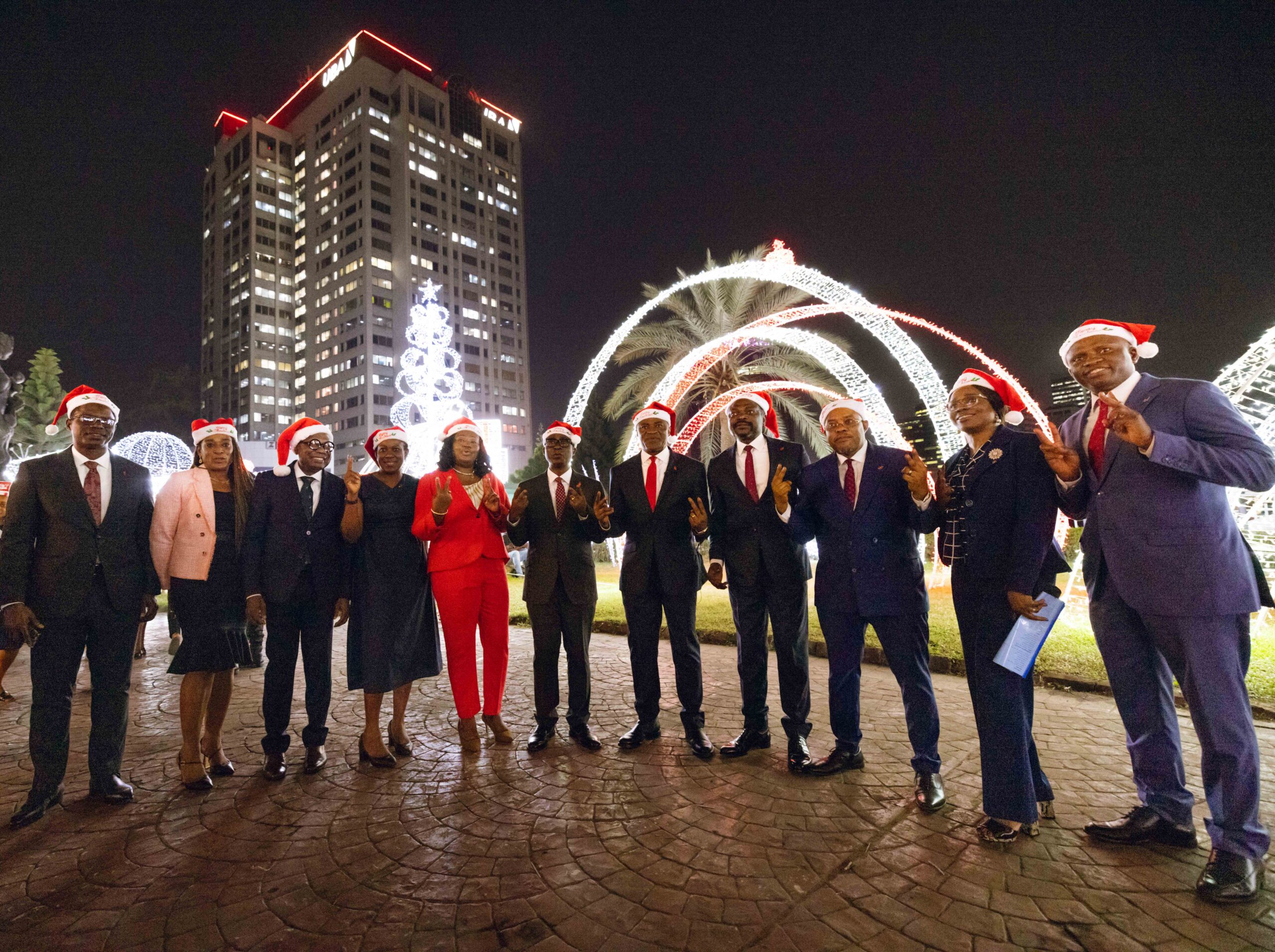SEC Dismissal: Fraudulent Wale Tinubu’s Many Lies

 The current predicament of Wale Tinubu, the controversial Group Chief Executive Officer (GCEO) of Oando PLC by the Securities and Exchange Commission (SEC), has only portrayed the popular parlance of ‘everyday for the thief, one day for the owner.’
The current predicament of Wale Tinubu, the controversial Group Chief Executive Officer (GCEO) of Oando PLC by the Securities and Exchange Commission (SEC), has only portrayed the popular parlance of ‘everyday for the thief, one day for the owner.’
On Friday, the SEC announced the dismissal of Wale Tinubu and other directors of Oando over allegations of infractions such as false disclosures, market abuses, mis-statements
in financial statements, internal control failures, and corporate governance lapses stemming from poor board oversight, irregular approval of directors’ remuneration, unjustified disbursements to directors and management of the company, related party transactions not conducted at arm’s length, amongst others.
Despite efforts by Wale Tinubu to deny these obvious facts, those who are familiar with his management have reiterated the allegations pointed out by the SEC.
“We usually inflate or deflate the results of the company, depending on the directive of the GCEO. To be honest, all points raised by the SEC are true, but I believe it would be resolved,” a close source told Global News.
Previously, Global News has published several exposé on the fraudulent activities of Wale Tinubu’s Oando Plc.
However, in his defence to the SEC allegations, a statement from Wale’s camp reads that:
“Our attention has been drawn to a press release published and syndicated by the Securities and Exchange Commission, on Friday, May 31, 2019 “Press Release on “Investigation of Oando PLC”
In the statement, the Commission confirms the conclusion of its investigations and that the findings from the audit report indicate serious infractions by the Company and as part of its measures to address these violations, the Commission has directed penalties as follows:
Resignation of the affected Board members of Oando Plc,
The convening of an Extra-Ordinary General Meeting on or before July 1, 2019, to appoint new directors,
Payment of monetary penalties by the company to affected individuals and directors,
Refund of improperly disbursed remuneration by the affected Board members to the company,
Bar of the Group Chief Executive Officer (GCEO) and the Deputy Group Chief Executive Officer (DGCEO) of Oando Plc, Wale Tinubu and Mofe Boyo from being directors of public companies for a period of five (5) years.
Oando is of the view that these alleged infractions and penalties, were unsubstantiated, ultra vires, invalid and calculated to prejudice the business of the Company, which might seriously affect the smooth running of the multi billion dollars investment.
The Company has not been given the opportunity to verify, review and respond to the forensic audit report, so its unable to ascertain what findings (if any) were made in relation to the alleged infractions and defend itself accordingly before the SEC.
The Company has reserved its rights to take all possible legal steps to protect its business and assets while remaining committed to acting in the best interests of all its shareholders.”
Trouble started for Wale Tinubu when two of Oando’s shareholders triggered SEC’s investigation of the oil firm. The two petitioners are Dahiru Mangal and Italian businessman, Gabriel Volpi.
The two petitioners filed at least four lawsuits against Oando following a wrecked business move in which the firm acquired oil infrastructures from CONOCO Phillips in Nigeria. The questionable deal cost Oando $1.5 billion. Mr. Volpi reportedly gave Oando’s Wale Tinubu the sum of $900 million to effect the deal. In addition, Mr. Mangal reportedly contributed $250 million while former Vice President Atiku Abubakar contributed $50 million to the purchase which proved a disastrous investment for Oando. The petitioners are alleging mismanagement and ownership fraud on the part of the company’s operators.
A source at SEC said the commission’s investigators had so far found evidence that Oando had “been cooking its books for the past six years, creating the impression that it was making a profit when in fact the company was swimming in debts and overburdened by mismanagement.”
Mr. Wale Tinubu is believed to be neck deep in Oando’s financial and investment crisis. Our SEC source stated that Mr. Tinubu’s stake in the company fell to a minuscule one percent after he secured funds from Mr. Volpi, former VP Atiku, and Mr. Mangal. Our source added that former Governor Tinubu apparently counted on using his political influence with the Muhammadu Buhari administration to re-inject life into Oando, “but that hasn’t happened.”
President Buhari frequently used Mr. Wale Tinubu’s private jet during the 2015 electoral campaign. In addition, the businessman was reportedly liberal with cash donations to the campaign, according to a political source who spoke to our correspondent.
Oando was once listed on stock exchanges in Toronto and Johannesburg, but Canadian authorities in 2015 halted any trading in Oando’s stock.
Wale Tinubu is also known for the his habit and clever way dodging taxes.
In stories published by Private Eye, a United Kingdom newspaper, it has been explained how Oando is taking advantage of the Department for International Development, through its development fund CDC (formerly the Commonwealth Development Corporation).
The following, according to Private Eye, is how it is done:
Oando attracts foreign capital flow from an American private equity fund known as “Emerging Capital Partners” based in Washington DC, which in turn receives funds from the UK government through the CDC Group; Oando a privatized Nigerian oil company is known and called Oando plc. But to avoid paying taxes to the Nigerian government Oando carries out its investment partnerships through an offshore company known as “Ocean and Oil Mauritius”, itself owned by a British Virgin Islands vehicle called “Ocean and Oil Holdings (BVI) Limited ” whose well-connected investors bought their 34 percent stake in Oando from the Nigerian government in year 2000.
It has been established from investigations carried out by the UK Metropolitan police that James Ibori and his schoolmate, Henry Imashekka, sent funds stolen from the sale of shares owned by the Delta State government to an offshore account, they later invested $10 million that were stolen in acquiring Notore Chemicals (formerly NAFCON).
CDC and its privileged offshore co-investors in Oando earn “technical fees” of 5 percent of profits and “management fees” of 4 percent through a Nigerian company called Ocean and Oil Investments, giving them a significantly better return than standard Oando plc shareholders. In 2008, the last year for which figures are known, $8.5m was paid by Oando in this way, signed off by Oando’s auditor PricewaterhouseCoopers.
Of Oando’s $91m remaining profits after these fees have been creamed off, $21m was earned by a company called Oando Trading Ltd, which boasts of being “Africa’s largest independent and privately owned oil trading company”. Except it is registered in the not-so-African tax haven of Bermuda. Unsurprisingly, the UK Private Eye’s efforts to locate some actual oil trading by Oando in Bermuda were fruitless: the contact number in Hamilton turns out to be the firm’s old administrators, called Appleby, while its new ones, the Harbour Group, could not connect the Eye to anybody with anything to do with Oando.
This is of course, a crude arrangement to avoid more than $7m a year in tax – which would provide quite a few schools or hospitals in Nigeria where the company really operates through offices in Abuja and Lagos. The scheme would not work if Oando were based in a developed economy such as the UK, where tax rules prevent the more blatant scams to stuff profits into tax havens, but poorer countries such as Nigeria are more vulnerable.
SEEDY CDC
METROPOLITAN Police charges naming a prominent Nigerian businessman, which can be revealed following the easing of reporting restrictions on a trial scheduled for later this year, pose more questions about Britain’s international development fund CDC formerly the Commonwealth Development Corporation, and its attempts to maximise profits by entrusting taxpayer’s money to questionable private equity firms.
One of the charges arising from Knacker’s long-running investigation into money laundering involving Nigeria is that a group of businessmen including Henry Imasekha “concealed, disguised, converted and transferred criminal property, namely the sum of $10m … knowing or suspecting that the sum constituted the benefit from criminal conduct of another person …”
Henry Imasekha, it so happens, is a major shareholder and director of one of CDC’s main Nigerian investments, privatized fertilizer company Notore. CDC invested in the company in 2007 through American private equity fund manager Emerging Capital Partners, which also invested CDC’s money in a couple of other large Nigerian businesses, including privatised oil company Oando, which does a nice line in tax avoidance.
CDC: Haven help us
TAX avoidance, explained Treasury minister Stephen Timms to a Paris conference recently, “costs developing countries billions each year in lost revenue – a major drain on often fragile economies and a genuine barrier to economic growth. These are vital resources for schools, hospitals and infrastructure”.
Perhaps he should explain this to the Department for International Development, which is busily fleecing fragile economies by sponsoring corporate tax avoidance at its development fund CDC, formerly the Commonwealth Development Corporation.
Through American private equity fund Emerging Capital Partners; CDC funds a privatized Nigerian oil company called Oando plc. But it doesn’t do this directly since this might mean it and its co-investors would have to pay some tax. Instead, it invests through a mysterious company called ocean and oil Mauritius, itself owned by a British Virgin Islands vehicle called Ocean and Oil Holdings (BVI) Limited whose well-connected investors bought their 34 percent stake in Oando from the Nigerian government in 2000.
Tax avoidance among CDC’s companies is unsurprising since the fund has modelled itself as a private equity investor, a structure in which tax dodging has always been an intrinsic part. But that doesn’t make the British development fund’s indulgence in the shady business any less damaging for poor countries like Nigeria.
Additional reports from SaharaReporters





